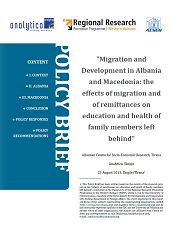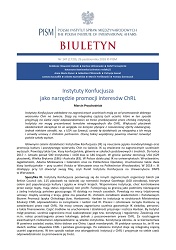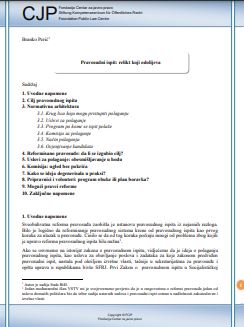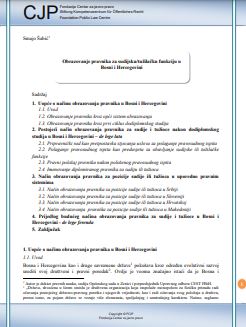
Migration and Development in Albania and Macedonia: the effects of remittances on education and health of family members left behind
Albania and Macedonia as traditionally migrant sending countries have experienced unprecedented migration and the end of this process is not in sight, it continues unabated. Emigration is reshaping Albania and Macedonia affecting local politics, economies and priorities, including the education and health of the family members left behind. As regards the effect of migration and remittances on education and health outcomes, the focus on Albania and Macedonia is crucial as there has been year on year low schooling and low health outputs in both of these countries. Children’s school attendance rates and literacy rates as well as health status are relatively low, leaving significant room for improvements in educational attainment and healthcare. The education might be publicly provided, however many families cannot afford to pay for it for their members due to several expenses related to school attendance such as transport, textbooks, supplies, or other implicit costs such as losses in family members with the migration. The importance of migration and of remittances for the migrant sending countries is measured also by the well-being of their recipients in terms of improved health status and in particular the health of the children. Remittances in volumes are high, and have become an increasing source of household income. Very interesting question is whether this increasing source of income has an impact on human capital accumulation decisions, including on schooling and healthcare. Many migrant sending families receive considerable financial transfers from their family members living and working abroad. Remittances help the population in migrant sending countries to cope with the distress of poverty, the inefficiencies of local labor markets and the break-down of the social security system.
More...


















